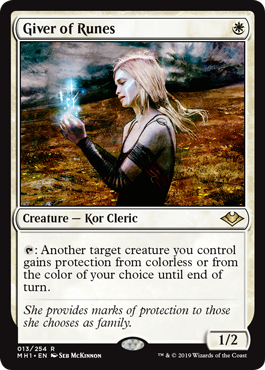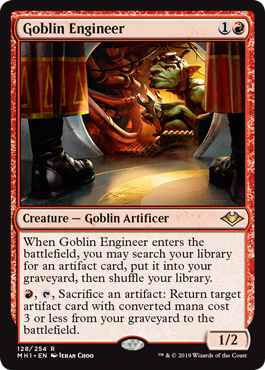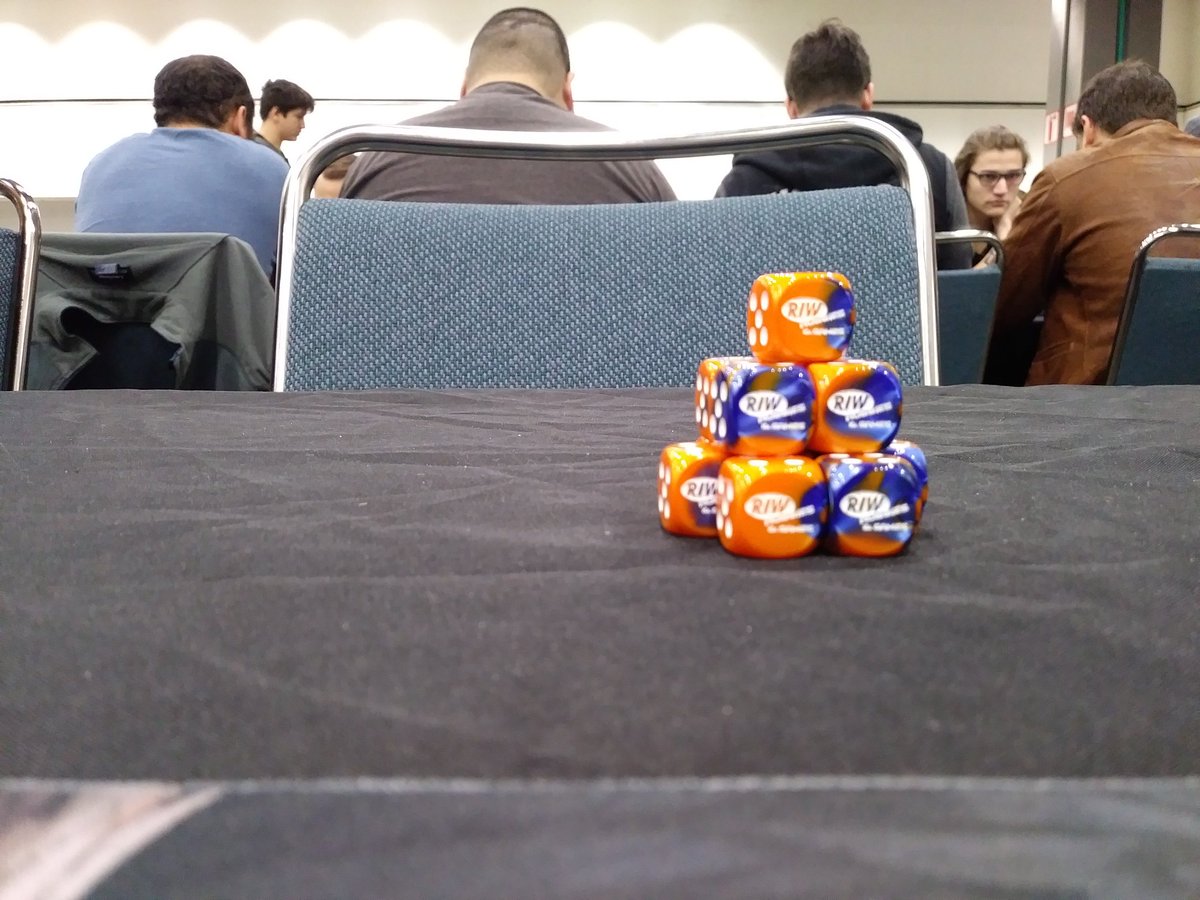I have a long Spellskite rant, but the short version is 1 mana vs 2 means this is good protection where Spellskite is mostly a weird hate card in the post-Fatal Push era.— Ari Lax (@armlx) May 22, 2019
Rant? Rant that is too long for Twitter?
This is exactly why The Internet invented blogs!
Oh, it also has a big theory impact on evaluating Modern Horizons. If you want to skip to that, Ctrl + F for the set name will get you there.
The Spellskite Rant
People play Spellskite in too many Modern decks. Even worse, when they do play it they sideboard it in way too often.
Spellskite is not a baseline good card in 2019 Modern. If you are going to play Spellskite to protect a card you control, you should probably just play another card that matters or a protection spell that costs one instead.
Spellskite in 2019 Modern is a hate card for pump spell strategies like Infect. Or maybe a hate card against very specific other effects with some upside. If you are mainly redirecting Path to Exile, it isn't good.
Wait, When Did That Happen?
I played a Modern Pro Tour where I distinctly remember narrowing my decision down to three decks, and all of them had multiple Spellskite in the 75. That was September 2012.
I played three Spellskite main deck at Pro Tour Eldrazi Winter and my deck was legitimately great. That was February 2016.
Going forward from there, I think I can pinpoint the exact date Spellskite became bad as February 19th, 2017. I think that might have been about the end of the road
Two things happened right then.
First off, Gitaxian Probe’s banning made Infect much less popular. But that’s the hate card angle, not the Spellskite just being good angle.
February 19th, 2017 was Grand Prix Vancouver. Eric Severson Top 8ed the Grand Prix playing Melira Company. He played against a black attrition strategy and was promptly dumpstered out of the event. That deck doing the dumpstering was Jund Death’s Shadow.
The card that killed Spellskite in the literal and metagame sense was Fatal Push.
End Of The Lightning Bolt Era
This wasn’t just Spellskite hit by Fatal Push. This was basically the whole format. From February 2017 though October 2017, you couldn’t really beat Death’s Shadow. There was a half a decade of inertia from Modern being a Lightning Bolt format, not a Fatal Push one, to override.
Fatal Push is just one mana removal, and it isn’t like Modern didn’t have to deal with one mana removal before. Lightning Bolt and Path to Exile have been format staples since its inception. But you can’t really Path to Exile on turn one or two without a real cost.
And Lightning Bolt has a specific cap. It didn’t hit Deceiver Exarch, Wall of Roots, Tarmogoyf, Restoration Angel, wow this list has a lot of cards that aren’t remotely playable any more.
And it certainly didn’t kill Spellskite, meaning that your opponent had to spend two mana on removal to answer your Spellskite.
Fatal Push had none of those qualms. Spellskite against Jund Death’s Shadow ate a one mana removal spell and that was the end of the story.
One Mana Modern
Really, Fatal Push was the start of the era where no matter what you did in Modern, it could be undone for one mana. It isn’t just Fatal Push doing this. Once Fatal Push changed the rules so that a four toughness two drop was in range of dying, it was no longer relevant that it didn’t die to Lightning Bolt. Which means there was little reason to play things immune to Lightning Bolt, and suddenly that card also killed everything for one mana.
There have been three natural reactions.
None of them are actually playing cards that cost five mana. Get real here.
Break rules, and produce things that cost less mana but technically don’t. Hollow One, Gurmag Angler, Scrap Trawler.
Play only things that exchanging for a one mana card is fine for, and more of them than they have removal. Champion of the Parish, Thalia, Guardian of Thraben, Goblin Guide.
Don’t play things that die. Urza’s Tower, Prized Amalgam, Arclight Phoenix.
These as a whole are also what accelerated Modern. You have people playing a bunch of cost reduced cards, one cost threats, and non-interactive decks. The second order effect of Fatal Push is why no one plays Pia and Kiran Nalaar any more. Notice how some of these are even zero mana options. I don't think we are breaking that barrier any time soon, but I won't be shocked when it happens.
There’s also a modularity associated with one mana plays that has accumulated. You might be familiar with this if you played Hearthstone odd/even payoffs, but there’s a mathematical function of mana efficiency here. If two drops are your optimal low cost card, the game is way slower because of the gaps in when you get to play multiple spells and use all your mana. Turn two and turn three look the same, turn four and turn five, etc. So you can fill in the gaps with clunkier cards, and mana curves exist. (Thanks to Corey Burkhart for putting this into words)
If you have one drops, you just get to always use your mana for the maximum number of actions. As long as each of those cards is worth about one cardboard-action (ie. you aren’t spending multiple one drops to exchange for one of their two drops), you just come out ahead because you do more things. Or the deeper effect of getting to trim lands, then draw more spells, and take more effects that way. This is the Delver of Secrets - Ponder problem from Legacy and Pauper.
So you play Spellskite. It costs your second turn or most of your third turn. They play a removal spell, it costs them a fraction of whatever turn, and wow does that suck. If you just had a different threat and they didn’t have Fatal Push that would be better. If you had a one mana spell it would be better.
That’s why Spellskite sucks. Unless of course you get to spend two mana and turn off their deck. Spellskite is to Bogles as Stony Silence is to Affinity.
And before you say it, yes I did play Spellskite recently in Whir Prison. It's a reactive hate card there. Welding Jar is your maindeck better Spellskite. Spellskite is your Spellskite against very specific things like Shattering Spree and Echoing Truth, which when you get your lock online are the literal only cards that matter. Sometimes blocking is an upside, sometimes improvising is an upside, and it rarely trades for a one mana card.
Modern Horizons
Where does that put our hundreds of new, targeted designs from Modern Horizons?
Let’s look at some previewed cards:
Giver of Runes is closer to Benevolent Bodyguard than Mother of Runes.— Ari Lax (@armlx) May 22, 2019
Not that Benevolent Bodyguard wouldn't see Modern play.
Giver of Runes is the textbook example here and the card that prompted this whole Spellskite discussion. It costs one mana and forces a trade for a one mana spell, which runs them out of answers for your other stuff. Giver of Runes will almost surely make a splash in Modern.
Goblin Engineer is closer to Entomb than Goblin Welder.— Ari Lax (@armlx) May 22, 2019
Oh wait, this is a favorable comparison. pic.twitter.com/3WBHQ3BoLR
Goblin Engineer is somewhere in the middle. It does force a removal spell, but it trades down on mana for that. So you want to set up a spot where the artifact search to graveyard matters, and losing it to a one mana removal spell still leaves you up an Entomb. Goblin Engineer will be good in a narrow range of strategies where that Entomb is a big deal, with the obvious one being Thopter Foundry - Sword of the Meek
Bazaar Trade Mage is the peak of the one mana issue so far. Why are you paying three mana for an effect that costs one mana (Faithless Looting)? You are down a card on a Fatal Push, so you are up…. Three discards? Gross.
So, when you think about Modern Horizons, think about the cards in context of one mana alternatives and interactions. Can you do this for one mana? Do you get wrecked by a one mana card? If you can't figure out how your spell is favorable against the one (or sometimes zero) mana options, try again.





